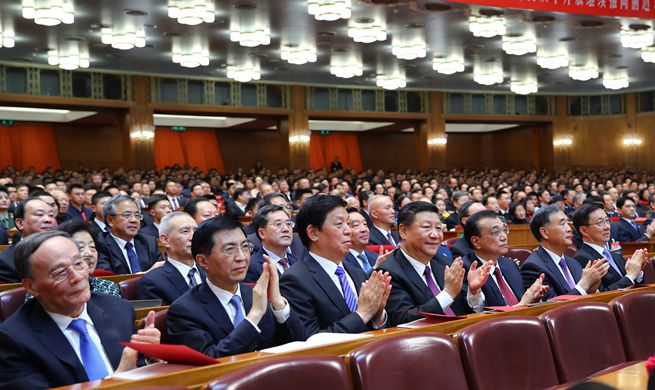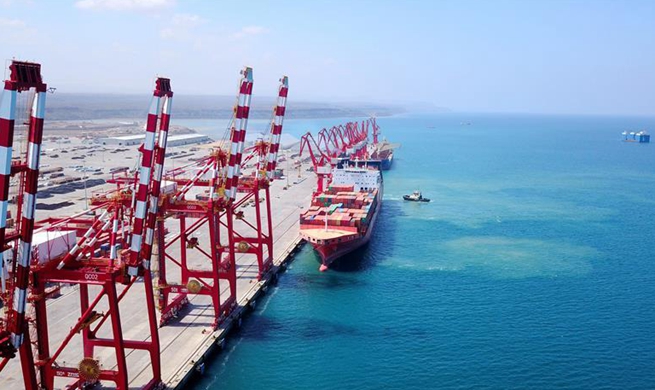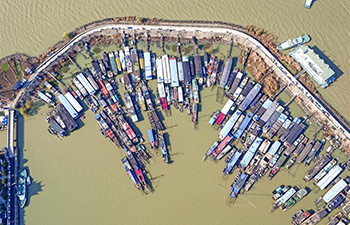DAMASCUS, Dec. 14 (Xinhua) -- Russian and Syrian government representatives signed a number of economic, scientific and industrial agreements in Syria's capital Damascus on Friday, state news agency SANA reported.
The agreements were reached at the end of meetings held by the Russian-Syrian Inter-Governmental Commission on Trade, Economic, Scientific and Technical Cooperation, which were held in Damascus over the past three days.
Syrian Foreign Minister, Walid al-Moallem, and the visiting Deputy Prime Minister of Russia, Yury Borisov, signed the agreements.
Al-Moallem said the meetings in Damascus have laid the features of the cooperation roadmap between both countries.
The Syrian foreign minister also welcomed the contribution of the Russian companies to the rebuilding process in Syria, stressing that the Russian support in the counter-terrorism in Syria has added new dimensions to the friendship between both countries.
Syria's Prime Minister Imad Khamis regarded the meetings as a "significant step" in boosting Syrian-Russian ties.
For his side, Borisov said that the years of war has resulted in massive losses, which require a joint action to build what has been destroyed, according to SANA.
He noted that the aim of the Russian-Syrian Inter-Governmental Commission is to rebuild the Syrian economy, saying that "Russia will remain the trustworthy friend of Syria."
In remarks to reporters following the signing of the agreements, Borisov said that the victories in fight with terrorism in Syria require a new stage of cooperation to achieve economic stability in Syria.
Meanwhile, the pan-Arab al-Mayadeen TV said that Russia and Syria signed the agreements and the currencies in use in the agreements are the Russian ruble and the Syrian pound, not the U.S. dollar.
Russia has supported the Syrian government forces in the Syrian conflict since 2015 and with the help of Moscow, the Syrian army succeeded to reclaim much of the country.
The agreements reflect the future of the economic cooperation between both sides to rebuild the Syrian economy, which was strongly beat during the war in terms of the devaluation of the Syrian pound and the Western sanctions imposed on Syria.



















